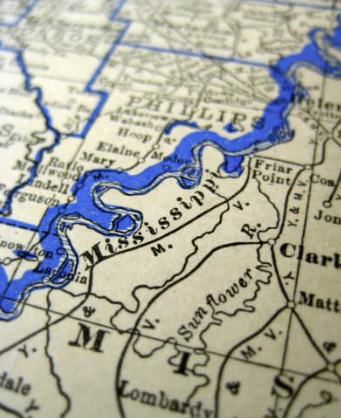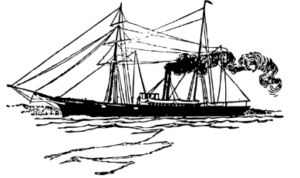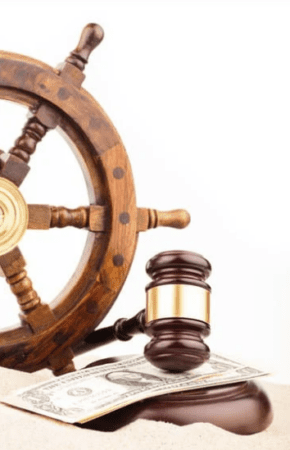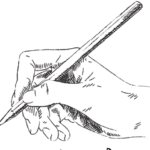Last Updated on March 13, 2025 by The Young Firm

However, dealing with all the legal complexities can feel impossible for a non-lawyer. Maritime cases often involve dealing with multiple jurisdictions, federal statutes, and complicated maritime regulations. That’s why most injured seamen benefit greatly from speaking with a Mississippi maritime lawyer who knows how to navigate personal injury claims under the Jones Act.
Not quite ready to speak with a maritime lawyer? No problem. We can give you the basics right here.
A Brief Maritime Law Overview
Maritime law, also known as admiralty law, governs activities and disputes that occur on navigable waters. Its primary purpose is to provide legal protections and remedies for maritime employees who have been hurt at sea while on the job.
Maritime law mandates that employers comply with safety regulations to avoid serious injury and wrongful death. Working offshore can be extremely dangerous, which is why we have international safety regulations that must be followed by all shipping countries.
Maritime law encompasses many issues, including personal injury claims, vessel operations, cargo disputes, and environmental regulations.
Key statutes within maritime law include:
-
The Jones Act, which allows injured seamen to seek compensation for employer negligence, and
-
Maintenance and Cure, which requires your employer to pay for medical and living expenses regardless of fault.
-
Unseaworthiness Claims, which state that an accident happened because of the unsafe condition of a vessel.
-
The Longshore and Harbor Workers’ Compensation Act (LHWCA), which provides benefits to maritime workers not classified as seamen.
-
Third-Party Liability Claims, if an accident is caused by the negligence of a third party (not an employer or fellow crew member).
Now let’s take a deeper look at these key statutes.
Jones Act Claims
The Jones Act, also known as the Merchant Marine Act of 1920, provides remedies for seamen who have been hurt or killed while working aboard a vessel. This doesn’t apply to one specific boat type; the Jones Act applies to fishing boats, crew boats, oil rigs, cruise ships, and more. This is what sets it apart from workers’ compensation claims, which typically cover land-based workers.
The Jones Act is a federal law that can be particularly helpful to Mississippi workers who have been involved in offshore accidents. That is because it covers a range of expenses, including lost wages, medical bills, and damages for pain and suffering.
To file a Jones Act claim, seamen must meet some specific criteria:
-
The injured party must establish their status as “seamen” under the law, which generally means spending significant time working on a vessel in navigation.
-
They must prove that their injury or illness was caused, in whole or in part, by the negligence of their employer, a fellow crew member, or a defective condition of the vessel.
If these criteria apply to you, our Mississippi Jones Act lawyers can provide legal counsel throughout your Jones Act claim.
Maintenance and Cure
Maintenance and cure is a common law doctrine requiring employers to provide necessary living expenses and medical treatment to injured employees until they reach maximum medical improvement. This obligation exists regardless of whether the employer was at fault for the accident.
For Mississippi seamen who’ve been in a maritime accident, maintenance and cure can cover various expenses related to their injuries, such as medical bills, rehabilitation, and daily living expenses such as food and housing.
Delaying maintenance and cure can result in additional legal liability, including punitive damages for the employer. Seamen should keep detailed records of their medical treatments and living expenses to ensure they receive the full benefits to which they are entitled under this doctrine.
Unseaworthiness Claims
If you’ve suffered a personal injury in a maritime accident, you may have the option of adding an unseaworthiness claim to your Jones Act claim. Maritime law bases this type of claim on the principle that vessel owners must provide a seaworthy vessel for their crew. This means that the vessel, its equipment, and its crew must be reasonably fit for their intended purpose.
To successfully pursue an unseaworthiness claim, an offshore injury lawyer must demonstrate that the vessel’s condition, equipment, or crew contributed to the accident. Unlike Jones Act claims, an unseaworthiness claim doesn’t require proof of negligence. This type of claim often complements a Jones Act claim, offering an additional avenue for recovering damages.
The Longshore and Harbor Workers’ Compensation Act (LHWCA)

The Longshore and Harbor Workers’ Compensation Act (LHWCA) provides compensation and benefits to maritime workers who the law doesn’t classify as seamen. Examples include employees working in shipyards, terminals, docks, and other areas supporting the maritime industry.
While this may not seem relevant to offshore workers from Mississippi, it can help if the accident occurred on land, such as in a port or shipyard. The LHWCA covers various benefits, including medical expenses, rehabilitation costs, disability, and vocational retraining.
The LHWCA ensures injured maritime workers receive timely medical care and financial support during recovery. It also provides for long-term benefits in cases of permanent disability. This law helps bridge the gap for maritime workers without protection under the Jones Act.
Third-Party Liability Claims
There may be other legal protections for Mississippi offshore workers who have had a work related injury. For example, they can possibly pursue third-party liability claims in addition to other legal remedies. A third-party liability claim arises when someone other than the seaman’s employer or a fellow crew member is responsible for the injuries. This type of claim can be pursued alongside Jones Act and unseaworthiness claims, potentially increasing the compensation available.
Examples of third-party liability claims for seamen include situations where a manufacturer provided defective equipment that led to the injury or when a negligent contractor caused an accident on the vessel. Identifying and holding these third parties accountable can provide additional compensation pathways.
A Mississippi maritime injury lawyer will inspect the equipment involved, review maintenance records, and obtain witness statements. A thorough investigation is necessary to build a strong case against the third party.
Seeking Legal Representation for Maritime Cases
For seamen from Mississippi who have suffered an injury at sea, obtaining legal representation is crucial to securing fair compensation. A Mississippi maritime injury attorney has the knowledge and experience necessary to handle the unique aspects of maritime law and the challenges that come with it. Hiring such a lawyer can significantly impact the outcome of a case. An attorney will explore all legal avenues to fully protect the seaman’s rights after a personal injury.
A maritime injury lawyer can also help injured seamen by thoroughly investigating the incident, gathering evidence, and building a solid case. This investigation includes examining maintenance records, safety protocols, training logs, and any other relevant documentation that can establish the cause of the injury and the extent of the employer’s or other parties’ negligence. The attorney can also consult with professionals in relevant fields to strengthen the case with informed perspectives.
Taking Care of All Legal Matters
In addition, the lawyer will handle all legal proceedings, from filing claims to negotiating settlements and, if necessary, representing the seaman in court. They’ll do all they can to ensure that the injured worker can focus on recovery while the attorney manages the legal complexities of the case. An attorney can also provide guidance on the various laws that may apply, ensuring that the seaman pursues the most appropriate legal remedies.
Experienced maritime attorneys are familiar with the tactics that employers and insurance companies may use to minimize compensation. They can effectively counter these tactics, advocating for the seaman’s best interests and striving to secure maximum compensation for medical expenses, lost income, pain and suffering, and other damages.
Preparing for a Maritime Injury Case
Preparing for a maritime injury case involves several critical steps that can significantly influence the claim’s success. For seamen from Mississippi injured at sea, thorough preparation is key to building a strong case and protecting all legal rights.
Documenting the Injury and the Accident
The first step in preparing for a maritime injury case is to document the injury and its circumstances. A Mississippi maritime injury lawyer will obtain medical records, accident reports, witness statements, and any other relevant documentation. Detailed records of the incident and subsequent medical treatments are essential for proving the extent of the injuries and the impact on the seaman’s life.
Contact a Mississippi Maritime Lawyer
Hiring a law firm that focuses on maritime law is critical for seamen from Mississippi injured at sea. An experienced Mississippi maritime injury lawyer can help ease the financial stress of lost wages, medical expenses, disability, and many other stressors that may arise after personal injury.
If you have any questions, our maritime law firm offers free consultations. A maritime personal injury lawyer will review your case with you and determine the best way to get your quality of life back.





